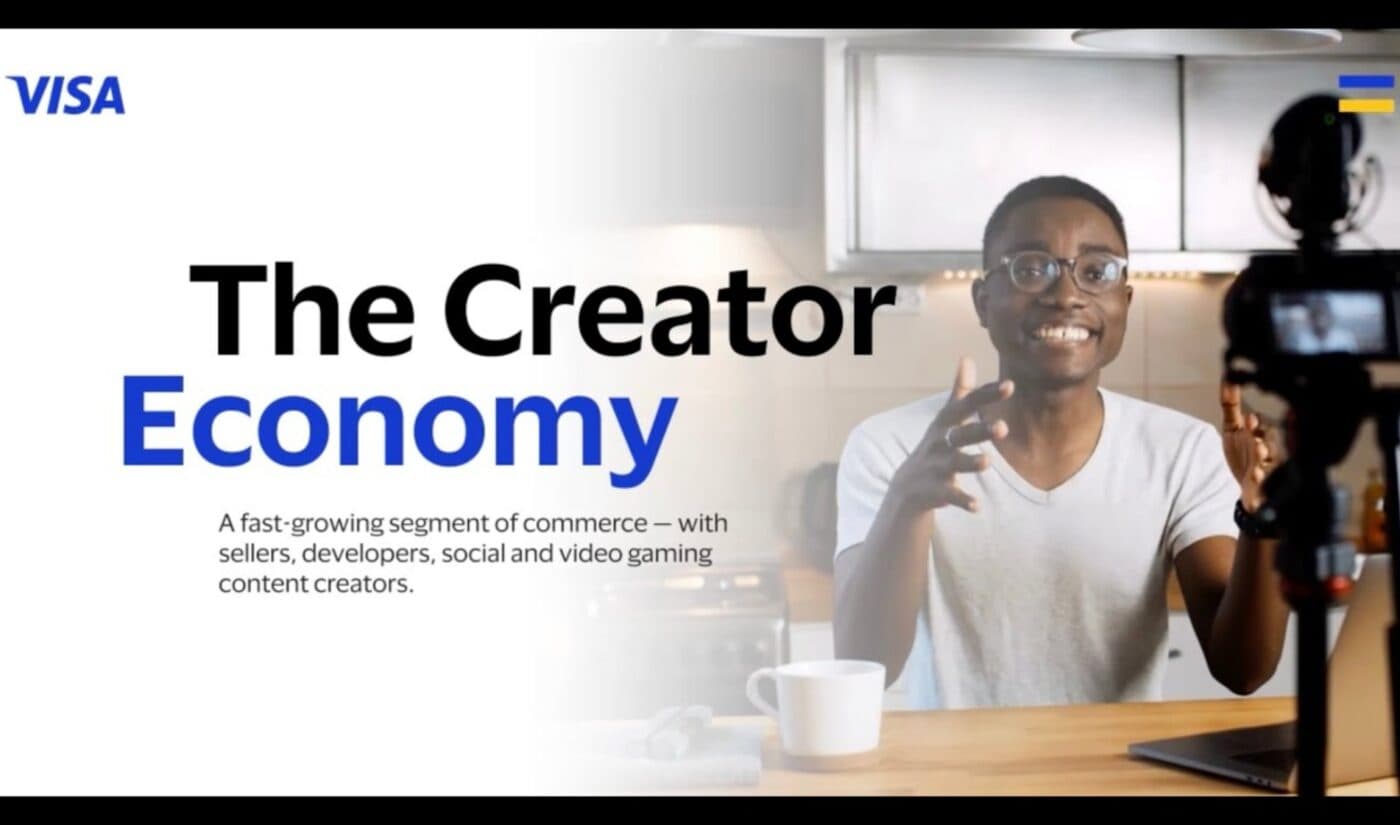Visa’s Recognition of Creators as Small Businesses Is a Rallying Cry for Other Brands to Follow Suit
By positioning creators as legitimate contributors to job creation, tax revenues, and GDP growth, Visa acknowledges the influence of creators on culture and commerce alike.

Creativity drives commerce, for sure and that’s why Visa’s recognition of creators as small businesses signals a significant cultural and economic shift. Today, creators—whether making engaging TikTok dances, launching viral YouTube shows, or building niche communities around specialized knowledge—can easily access Visa’s suite of secure payment tools, financial resources, and business products previously reserved for traditional entrepreneurs.
Why does this matter?
It’s not just about convenience; it’s about legitimacy.
For too long, creators have navigated a world that profited from their ingenuity while denying them institutional recognition. Traditional banks, shackled by outdated views/approaches, have often been slow to classify creator careers as viable businesses. The result? Limited financial trust, stifled growth, and a glaring gap between digital creators’ economic impact and their access to financial systems that serve other small enterprises.
Visa’s move addresses this imbalance head-on. By positioning creators as legitimate contributors to job creation, tax revenues, and GDP growth, Visa acknowledges the influence of creators on culture and commerce alike. This evolution isn’t just symbolic; it is structural. It elevates creators’ financial access and business credibility in a digital-first economy where influence increasingly shapes spending patterns.
Consider Nigeria’s foray into harnessing the power of creators to drive national policy understanding. In a recent initiative, the federal government enlisted prominent influencers—music legend 2Face Idibia, comedian Basketmouth and lifestyle content creator Ola of Lagos—to study India’s successful adoption of compressed natural gas (CNG). This influencer-driven diplomatic effort, championed by Otega Ogra, Senior Special Assistant (Digital/New Media) to President Bola Tinubu, aims to demystify Nigeria’s transition to gas energy by using the relatable voices of digital storytellers.
“The influencers will provide Nigerians with a clearer understanding of CNG’s potential by experiencing how one of the world’s largest adopters of CNG, India, has successfully integrated it into everyday life,” Ogra says.
I agree the execution could be better, but that’s beside the point here as we zero in on the bigger picture.
The rise of the creator economy, now woven into the fabric of global trade and policymaking, is no longer a niche trend. It’s a cornerstone of modern influence, revenue generation, and innovation. Visa’s recognition is a rallying cry for other brands—especially in the financial sector—to follow suit, expanding their support structures for creators shaping tomorrow’s markets.
At Creator Economy IQ, we are already helping our clients seize this momentum. Our strategies equip traditional brands to enter the creator economy with relevance and impact, connecting their growth ambitions to the dynamic energy of cultural entrepreneurs.
But as the creator economy matures, a broader question lingers: How will financial institutions and policymakers evolve beyond performative gestures to fully integrate creators into the foundation of a thriving digital economy? What will it take for creators’ value to be embraced not just as culture-shapers, but as indispensable architects of the future of commerce?
Questions...








